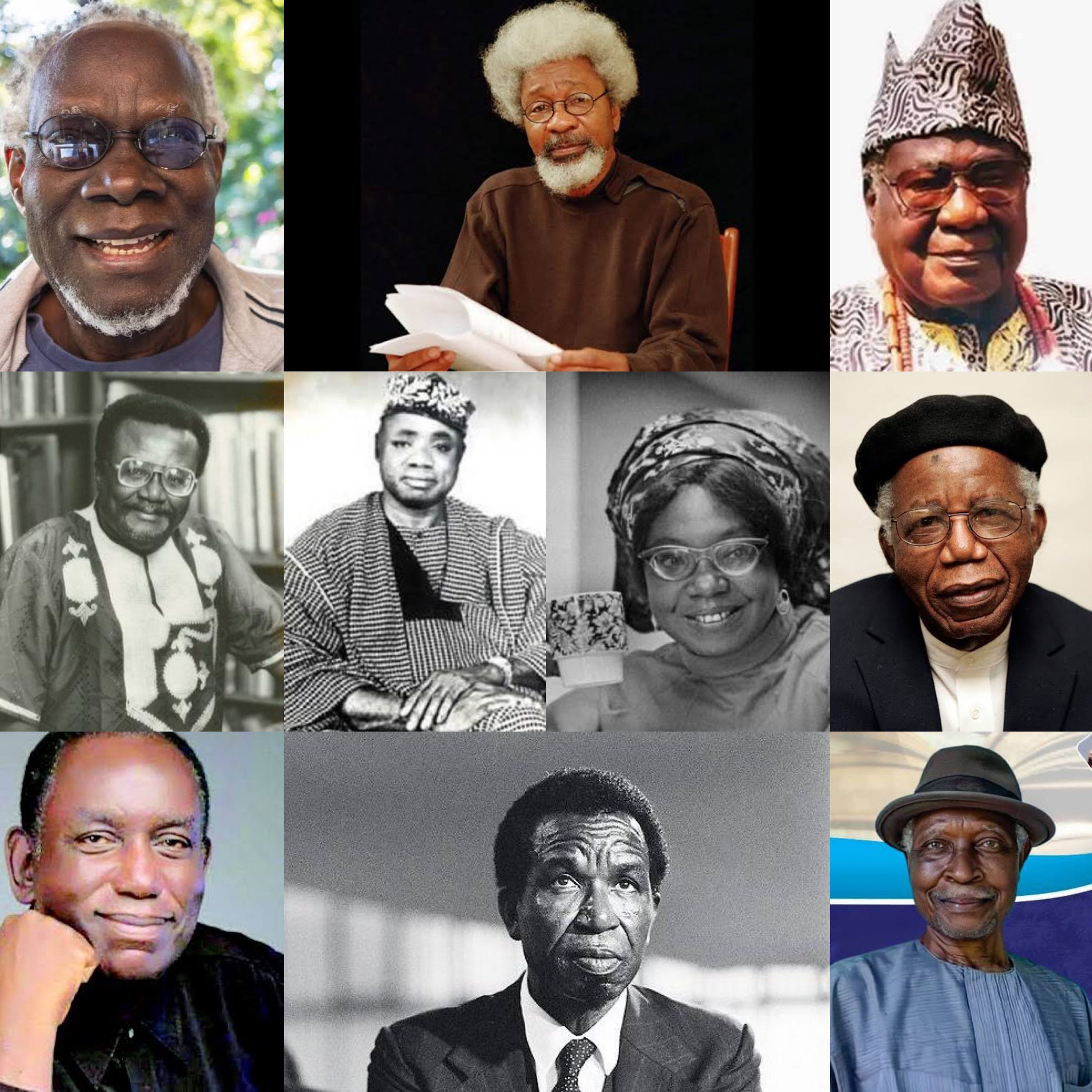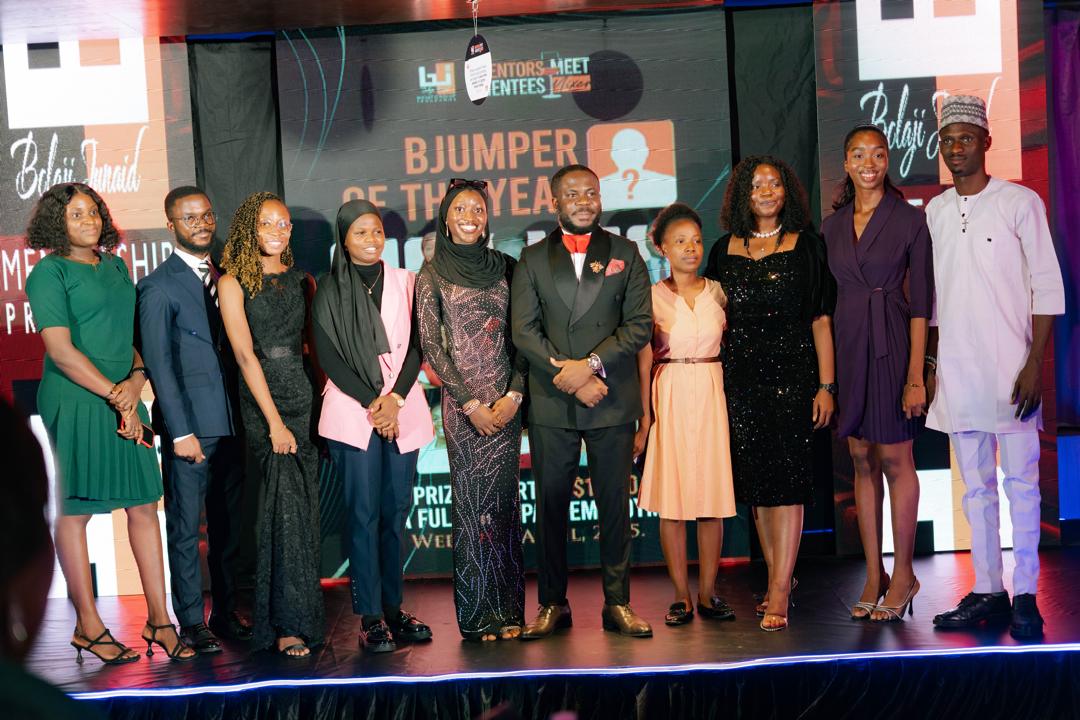By Abimbola Mohammed
Nigerian writers are as many, diverse and artistically rich as the nation that produced them. Their works have been acclaimed internationally. While some of their works are trailblazing, all are unequivocally the most creative literary interpretation or representation of the rich culture and ways of life of the people of the greatest and most populous black nation on earth.
In this edition of our Throwback Thursday, we present the Nigerian novelists whose works are now legendary in the literary world.
Amos Olatubosun Tutuola Odegbami, born on 20 June 1920, in Wasinmi, Abeokuta, was arguably Nigeria’s first English novelist as his work; The Palm-wine Drinkard was published in 1952. Other titles from him are, ‘My life in the Bush of Ghosts 1954, The Brave African Huntress 1958, Feather Woman of Jungle 1962, Ajayi and His Inherited Poverty 1967, Pauper, Brawler and Slanderer 1987, The village Witch Doctor and other Stories (1991). Unfortunately, he was never recognized for his pioneering effort.
Cyprian Odiatu Duaka Ekwensi, born on September 26, 1921 attended Government College in Ibadan, Oyo State, Achimota College in Ghana, and the School of Forestry, Ibadan, after which he worked for two years as a forestry officer. He wrote hundreds of short stories, radio and television scripts, and several dozen novels, including children’s books. ‘People of the City’ 1954 was his first book to garner international attention. He also wrote ‘Drummer Boy’ (1960), and Jagua Nana (1961). His other books include: Beautiful feathers 1963, An African night entertainment 1963, Iska 1966, Lokotown and other stories 1966, Survive the peace 1976, and Jagua Nana’s Daughter 1986.
He received the Dag Hammarskjöld’s International Prize in Literature in 1968 and he was made an MFR in 2001. In 2006, he became a fellow of the Nigerian Academy of Letters.
Florence Nwanzuruahu Nkiru Nwapa (13 January 1931 – 16 October 1993), was a Nigerian author who has been called the mother of modern African Literature. She achieved international recognition with her first novel Efuru, published in 1966. Her other works includes: Idu 1970, Never Again 1975, One Is Enough 1981, Women are Different 1986, and The Lake Goddess 1995.
Elechi Amadi, born on May 12, 1934, studied Physics and Mathematics at the University College of Ibadan, located in Nigeria’s second-largest city. After earning his degree in 1959, he worked as a surveyor for a year, and then became a science teacher. From 1963 to 1966 he served in the Nigerian Army, and upon his discharge took a job as headmaster of the Asa Grammar School. The Concubine was published at about this time, and the book solidified his reputation as a writer, both home country and abroad.
Bankole Ajibabi Omotoso , popularly known as Kole Omotoso was born 21 April 1943. Educated at King’s College, Lagos, and the University of Ibadan, he is known for his dedication and commitment to fusing a socio-political reappraisal of Africa and respect for human dignity into most of his works. His doctoral thesis was on the modern Arabic writer Ahmad Ba Kathir at the University of Edinburgh. Omotoso’s work include: The Edifice (1971), The Combat (1972), Miracles (short stories) (1973), Fela’s Choice (1974), Sacrifice (1974, 1978), The Scales (1976), To Borrow a Wandering Leaf (1978), Memories of Our Recent Boom (1982), and Just Before Dawn (1988)
Chief Daniel Orowole Fagunwa popularly known as D. O. Fagunwa, was a Nigerian Yoruba author who pioneered the Yoruba-language novel. He was born in Oke-Igbo, Ondo State in 1903. He trained as a teacher at St. Andrew’s College, Oyo. Fagunwa wrote his Ògbójú Ode nínú Igbó Irúnmole in 1938 and it was widely considered the first novel written in the Yoruba language and one of the first to be written in any African language. Other works are; Igbo Olodumare, 1949, Ireke Onibudo, 1949, and Adiitu Olodumare, 1961. His works have been translated into English and other languages.
He was made a Member of the Order of the British Empire, MBE in 1959
Oladejo Okediji is one of the foremost writers in the Yoruba language. He has written, with equal success, novels, plays, and short stories. His first two novels are Aja lo leru (1969) and Agbalagba Akan (1971) followed by Rere Run (1973), and later he wrote Atoto Arere (1981), His play Aajo Aje (1997), was translated as Running after Riches (1999).
Albert Chinualumogu Achebe, popularly called Chinua Achebe, was born 16, November 1930, in Ogidi, Nigeria. In 1958 he published Things Fall Apart; his groundbreaking novel which brought him worldwide attention. It has since become one of the most widely read books in modern African literature. One of the protagonists of the Mbari club, Ibadan, Achebe taught English and literature at University of Ibadan, Achebe taught for a short time before joining the staff of the Nigerian Broadcasting Corporation in Lagos, where he served as director of external broadcasting in 1961–66. Later novels include A Man of the People, No Longer at Ease, Arrow of God, Hope and impediment, The Trouble it Nigeria, Collected Poem, Predictions: Thirty Great Minds on the Future, Home and Exile, Chie and the River, and There was a Country.
Achebe was the recipient of dozens of honorary degrees from universities. Among other honors, he was awarded the Man Booker International Prize, the Dorothy and Lilian Gish Prize, and the Commonwealth Poetry Prize.
Akinwande Oluwole Soyinka, popularly known as Wole Soyinka or WS was born in 1934 in a town called Ijebu Isara, close to Abeokuta. After preparatory university studies in 1954 at Government College in Ibadan, he continued at the University of Leeds, where, later, in 1973, he took his doctorate. During the six years spent in England, he was a dramaturgist at the Royal Court Theatre in London 1958-1959. In 1960, he was awarded a Rockefeller bursary and returned to Nigeria to study African drama. At the same time, he taught drama and literature at various universities in Ibadan, Lagos, and Ife, where, since 1975, he has been professor of comparative literature. In 1960, he founded the theatre group, “The 1960 Masks” and in 1964, the “Orisun Theatre Company”, in which he has produced his own plays and taken part as actor. He has periodically been visiting professor at the universities of Cambridge, Sheffield, and Yale.
Soyinka was awarded the Nobel Prize in Literature in 1986, Academy of Achievement Golden Plate Award in 2009. He is the Founder/Co-Founder: Drama Association of Nigeria. Other Awards include Anisfield-Wolf Book Award 1983, Agip Prize for Literature 1986, Benson Medal from Royal Society of Literature 1990, and Academy of Achievement Golden Plate Award 2009.
His books are Season of Anomy 1973, The Lion and the Jewel 1962, Kongi`s Harvest 1967,The Road 1967, Myth, Death and the King’s Horseman 1975, Literature and the African World 1976, The Credo of Being and Nothingness 1991, The Jero plays 1973, Happiest People on Earth 2002, King Baabu 2002.






Comment
No comments found.